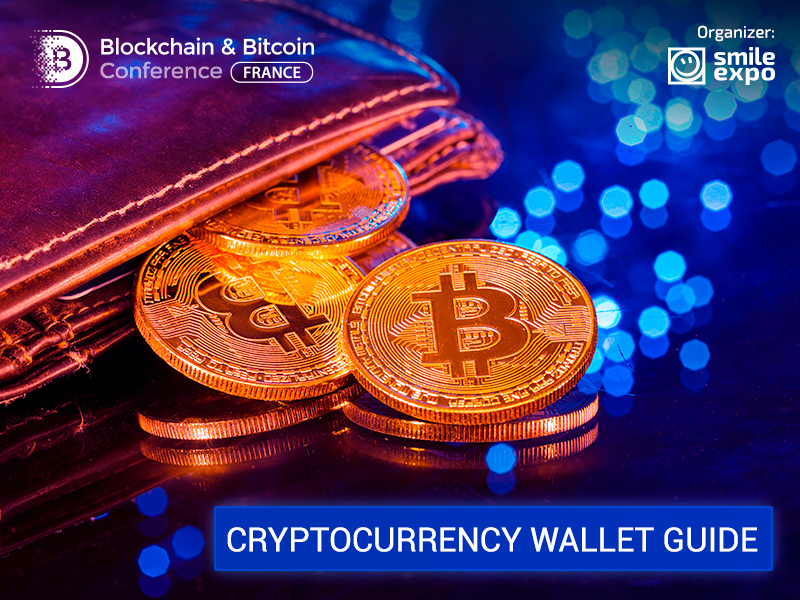Cryptocurrency Wallet Guide: How Does It Work and Which One to Choose?

Cryptocurrency needs to be kept somewhere and crypto wallets have been invented for this purpose. What are they, how do they function and how to choose one for yourself? Let’s investigate!
What is a cryptocurrency wallet?
Crypto wallet – software wallet where your crypto coins are located with the storage of private and public keys. If you get a multicurrency wallet, you can keep several altcoins at the same time.
How does cryptocurrency wallet work?
You don’t have digital coins directly in the wallet. Instead, you have keys, and with them you can add transactions to the distributed ledger. To unlock crypto sent to you and start spending, you should have private key in your wallet matched with public address where crypto is assigned to – then your balance increases.
Types of crypto wallets:

Software wallets:
- Desktop: these ones are very secure as you download and install them on your PC. Then, they are available only from it.
- Online: wallets work on the cloud and you can access them from any device. As the key are stored online, the possibility of hacks and theft is high.
- Mobile: apps on mobile phones – simple and easily accessible everywhere.
Hardware wallets:
To use these wallets, you will need to get a separate hardware device. As keys will be stored offline, the security is high.
Paper wallets:
They also have great security level as pair of keys is generated by a special software and you have them printed out.
Security:
Offline wallets are safer to use as cold storage protects your digital coin from hacks, however, if your private keys are lost, your money is gone.

What will raise the protection level?
- Wallet backup – have small amount of coins online to make transactions every day, while your main funds should better be stored offline.
- Software update – by doing this, you will get latest security improvements.
- More security layers – complicated passwords, two-factor authentication and many pin code requests – this will increase the security.
What about fees?
Some transactions don’t have fees at all, while for some fees need to be paid. You still don’t have to pay a lot (transaction size of 226 bytes is approximately 18,080 satoshis fee which is around $0.12). You can set fees yourself as well but if you choose it to be too low, the priority of your transaction will decrease, meaning that you will have to wait for a long time to get it confirmed.
Which wallet to choose?
1. Bread Wallet (mobile BTC)
Pros: private and secure, easily manageable, free.
Cons: no web or desktop interface, lacks features, hot storage.
2. Mycelium (mobile BTC)
Pros: high privacy, free, regarded as one of the best
Cons: hot storage, difficult for beginners
3. Exodus (desktop multicurrency)
Pros: private and secure, easy to use, multicurrency, free
Cons: hot storage
4. Copay (desktop, mobile, online)
Pros: private and secure, multi-signature, easy to use, free
Cons: can be slow and unresponsive
5. Jaxx (multi-platform and multi-currency)
Pros: private and secure, user support, easy to use, works with BTC, ETH, ETH Classic, Dash, DAO, LTC, REP & more, free
Cons: not open source, slow loading
6. Armory (desktop BTC)
Pros: private and secure, multi-signature, cold storage, free
Cons: only for experienced users
7. Trezor (hardware BTC)
Pros: cold storage, easy to use
Cons: price $99, requires device to send bitcoins
8. Ledger Nano (hardware multi-currency)
Pros: cold storage, small in size, comparatively cheap (~$65 USD)
Cons: absent password manager and labeling




